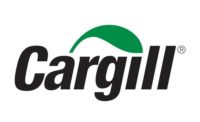Mondelēz International invests in Circulate Capital’s Ocean Fund

Mondelēz International, Inc. has advanced its commitment to helping create a circular economy for plastic by joining Circulate Capital Ocean Fund (CCOF) as a limited partner and making an investment in CCOF supporting scalable business solutions to help develop infrastructure for the collecting, sorting and recycling of plastic waste, including flexible films. The goal of this investment, which is part of Mondelēz International’s Sustainable Futures impact investing platform, is to enhance focus on the physical collection of flexible films—lightweight, multi-layer plastics used by the snacking industry—that have traditionally been more difficult to collect, sort, recycle, and ultimately reuse.
CCOF is an investment fund dedicated to addressing India and Southeast Asia’s plastics challenges, and its investors include some of the world's leading consumer packaged goods companies. The fund provides financing to waste management, recycling and circular economy start-ups and small- and medium-sized enterprises across India, Indonesia, Thailand, Vietnam, and the Philippines. CCOF helps identify collection and recycling solutions, catalyzes capital to both scale and replicate those solutions and connects these enterprises to the world’s leading companies. Mondelēz International’s investment in CCOF is expected to finance enterprises that support the company’s goal to collect more plastic waste than the company currently produces across India and Southeast Asia and will further CCOF’s investments into flexible plastic waste collection, recycling and infrastructure enterprises.
“This investment marks a pivotal step forward in our contribution to a circular economy for plastics and is a clear demonstration of our long-term goal of net zero waste,” said Dirk Van de Put, chairman and chief executive officer, Mondelēz International, Inc. “As part of our ambition to become a more sustainable snacking company, this partnership will help fund businesses that are trying to fill systemic gaps in the collection, sorting, and reuse of plastic waste, including flexible film.”
“We are excited to partner with Mondelēz International, a world leader in the food and beverage industry. [Its] investment in the Circulate Capital Ocean Fund will enable us to put more capital to work by funding enterprises located in South and Southeast Asia with innovative solutions to combat plastic waste and advance the circular economy,” said Rob Kaplan, Founder and CEO of Circulate Capital. “Adding Mondelēz International to our esteemed list of global partners is a reflection of the significant impact our portfolio companies have made thus far. This additional catalytic capital will also help CCOF reach our expected environmental and economic impacts by 2030 which includes the prevention of more than 13 million tonnes of plastic pollution leakage and at least 17 million tonnes of CO2e avoided.”
Progress, programs & partnerships
Mondelēz International has already made significant progress toward its packaging recyclability targets. The company has removed 65,000 tons of packaging from its portfolio since 2013 and remains on track to achieve its 2025 goals to reduce virgin plastic use in rigid plastic packaging by 25 percent or reduce virgin plastic in overall plastic packaging portfolio by 5 percent, assuming constant portfolio mix compared to 2020, increase use of recycled content to 5 percent by weight across plastic packaging and design 100 percent of its packaging to be recycle ready. To date, approximately 94 percent of all of the company’s packaging is designed to be recycle ready.
“Our support for a more sustainable future for plastics is clear. We’ve made significant strides to reduce plastic packaging use, substitute plastics for other materials, design to be recycle ready, and set ambitious plastics packaging goals across our portfolio,” said Christine Montenegro McGrath, VP and chief of global impact and sustainability, Mondelēz International. “We are proud of our progress to date but know more must be done through innovative partnerships and investments like this one to be able to scale more sustainable solutions for plastics packaging, including flexible film.”
Mondelēz International already supports initiatives promoting a circular economy for plastics with programs underway across multiple markets demonstrating a strategic focus on less, better and improved plastic packaging and systems. For example:
- In India, Mondelēz International, in partnership with Sustainable Futures, made a seed investment into Hasiru Dala, an NGO, to create a social enterprise to sort, clean, and recycle flexible plastic waste into more sustainable everyday products and targets to recycle 600 tons of multi layered plastics every year. The project implements recycling technology purchased from a local start-up and, together, these women-led local businesses positively impact the local economy through job creation.
- In the Philippines, Mondelēz International is working with several organizations to attempt to recycle and co-process multi-layer and single use plastics and is collaborating with small enterprises focused on a circular economy for plastics.
- In Indonesia, a waste bank project is ongoing in two schools to help educate children on the importance of collecting and recycling waste. The goal is to recycle plastic into construction material and use it to help renovate schools.
- In United Kingdom and Australia, as part of Mondelēz International’s global goal to reduce the use of virgin plastic material in its overall plastic packaging portfolio by 5 percent by 2025, compared to 2020, select Cadbury Dairy Milk will be made with packaging containing up to 30 percent recycled plastic material starting in 2022.
Mondelēz International is an active participant in the Consumer Goods Forum Plastic Coalition of Action, the Business Call for a Global UN Treaty on Plastics Pollution, the U.S. Plastics Pact, the Ellen MacArthur Foundation’s New Plastics Economy Global Commitment, the New Plastics Economy Initiative, the European CFLEX Initiative, the UK Plastics Pact and the UK Flexible Plastic Fund (formerly known as EPPIC), the India Plastics Pact, and the Australia/New Zealand Plastics Pact, among others.
Looking for a reprint of this article?
From high-res PDFs to custom plaques, order your copy today!






